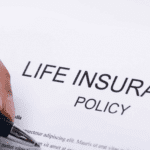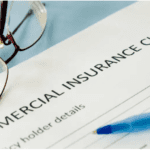Home business insurance is a special kind of insurance that helps a business protect its tangible assets, intellectual property, and financial resources from unforeseen occurrences that can cause sizable financial losses.
Home business insurance protects the insured business from harm or loss brought on by occurrences like natural catastrophes, theft, vandalism, legal actions, lost income, and employee illness, accident, or death.
Why should your firm buy Home business insurance?
Because they run a high financial risk in the event of a loss, small business owners must thoroughly research and assess their company’s requirements.
If the business owner does not think they are capable of assessing business risk and the requirement for insurance coverage, they must work with a knowledgeable, trustworthy insurance agent.
Home business insurance shields SMEs from a range of dangers, including fire, theft, professional liability, general third-party liability, payment for injured employees’ medical bills, and others.
Types of Home business insurance.
A variety of choices are available for company coverage. The type of Home business insurance your company needs will depend on factors including its size, location, industry, and the number of employees.
Your insurance requirements may alter as the business develops, it is likely. The following are many types of business insurance policies:
1.General Liability Insurance.
A company’s general liability insurance shields it from customer and client claims of bodily harm and property damage. Claims of this nature could be brought about by the goods, services, or activities of your business.
Without general liability insurance, you might have to pay out of the profits of your company and, in the worst situation, even declare bankruptcy.
The terms “business liability insurance” and “commercial general liability insurance” are both used to refer to general liability insurance. A company is shielded by general liability insurance from a range of potential claims, including:
a.Bodily injury – It is a frequent accusation caused by the company. A general liability insurance coverage would pay the injured person’s medical expenses if they were a visitor to your place of business and were hurt. In an office or retail setting customer’s fall could give rise to a bodily harm lawsuit.
b.Property damage – Another typical liability claim is property damage. If someone’s property is harmed while visiting your establishment, your company can be held legally liable. If you are traveling to a client’s home or other property on business, property damage claims may include involving damage to that property.
c.Copyright infringement – Claims arise when you are charged with using another person’s creation in an advertisement or other form of commercial marketing without that person’s consent.
d.Reputation harm – When you’re being interviewed by a news organisation and you say something negative about another corporation, it could damage your reputation.
e.Advertising injury – If your company disparages another person, business owner, or corporation, It could cause advertising injury.
Three main sections make up a standard general liability policy:
i.Coverage A: Bodily Injury and Property Damage – This insurance covers your company against losses brought on by bodily harm to third parties or damage to their property that you or your workers may cause.
ii.Coverage B: Personal and Advertising Injury- This coverage offers coverage for stealing someone else’s advertising concept or copyrighted content in addition to safeguarding you against things like defamation or libel.
iii.Coverage C: Medical Payments- This insurance covers the costs of a person who is hurt or killed in an accident that occurs at your business location or as a result of your business operations, including medical, surgical, ambulance, hospital, professional nursing, and even burial charges.
What is not covered by commercial general liability insurance?
-Employee injuries or illnesses resulting from their work– That is the purpose of workers’ compensation insurance. Your employees will get benefits under a workers’ compensation policy to aid in their recovery from an illness or injury sustained at work.
–Damage to your business property– For the protection of your owned or rented building and business equipment, you will need commercial property coverage.
–Automobile accidents are caused while driving for work by you or your staff. A commercial auto policy is crucial if you drive for a living.
-Errors in professional services –If a client sues you because of a mistake in the professional services your company offered, professional liability coverage will aid in paying your legal expenses.
Allegations of discrimination or harassment.
2.Commercial Property Insurance.
If your company property is lost, stolen, or harmed by issues covered by your policy, commercial property insurance pays to replace or repair it (such as a fire).
This sort of insurance is also known as commercial property insurance. In a business owner’s policy, commercial property insurance, general liability insurance and business interruption insurance are frequently combined (BOP).
What is covered under commercial property insurance?
Your company’s office or building, as well as any related hardware, supplies, inventory, computers, office furniture, priceless documents, and business records, are normally covered by commercial property insurance. Outdoor fixtures like signs and fences are also covered. It also covers other people’s property.
Makes note of a “named perils” or “open perils” policy.
–A named perils policy will cover only the issues specified covered by the policy, which are often things like fire, theft, vandalism, and wind damage.
–An open perils policy will give you broader protection. Any issue will be covered, barring those that are specifically excluded ( for example, flood damage). It will cost more than a named perils property insurance policy due to its better protection.
The following issues are frequently covered by commercial property insurance;
-Fire
-Lightning
-Wind
-Hail
-Theft
-Vandalism
What Does Commercial Property Insurance Not Cover?
It’s critical to understand the circumstance in which commercial property insurance is insufficient and when additional protection may be required. Here’s when commercial property insurance won’t help you:
-While making a business delivery in the corporate car, you are involved in a car accident. Commercial motor insurance would provide coverage in this situation.
-Your office building flooded as a result of the severe weather. Insurance for commercial property excludes flood damage. To cover the cost of flood damage, you will need to purchase a separate flood insurance policy.
-Inadvertently damaging a client’s wall while on a business trip. General liability insurance would provide coverage for this kind of property damage.
3.Errors and Omissions Insurance.
Errors and omissions (E&O) insurance is a type of liability insurance that protects your company from lawsuits claiming that you provided professional services that were incomplete, inaccurate, or delivered late. Insurance for professionals is another name for E&O.
Examples of E&O claims are as follows:
-A real estate agent omits vital details regarding a property.
-The public’s response is adverse to a public relations firm’s plan.
-Advice from marketing experts causes businesses to lose money.
-A tax preparer makes a mistake that incurs a penalty.
-A contractor fails to complete a project on time.
What Is Protected by Errors and Omissions Insurance?
Each type of business makes mistakes. Here are certain missteps that, in addition to genuine errors and omissions in work, might lead a client to sue your company.
-Misrepresentation
-Violation of good faith and fair dealing
-Negligence
-Incorrect or false advice
If your company is the target of an errors and omissions claim. You may have to pay for your legal defense, as well as any settlements or court judgments, as well as court expenses and attorney fees.
You might be subject to disciplinary hearings from a licensing or regulatory authority, depending on the claim.
You can experience a loss of income as a result of the time spent taking depositions and appearing in courts as you defend yourself against an errors and omissions case. All of these expenses are covered under errors and omissions insurance.
What Do Errors and Omissions Insurance Exclude?
–Employment practices- Errors and omissions insurance does not provide coverage for unfair hiring practices or harassment. To aid with these expenses, you will require an employment practices liability insurance policy.
–Patents and trade secrets – You are also not protected by E&O If you are sued for patent infringement or theft of trade secrets. If you have stolen intellectual property, a general liability policy could provide some protection.
–Bodily injury or property damage– your company’s negligence would not be covered by an errors and omissions coverage. You would require a company liability insurance policy to cover these claims.
–Work-related illnesses and injuries– fall under workers’ compensation insurance.
–Personally identifiable information – Your Company’s loss or theft is not covered by errors and omissions insurance. Insurance coverage for data breaches might aid in paying for these expenses.
4.Commercial Auto Insurance.
If you or an employee is involved in an auto accident while using a corporate vehicle for work, commercial auto insurance can assist cover the costs. Even in the case of a fatal accident, this coverage may be able to assist in covering property damage and medical costs.
Your company may be better off with commercial auto insurance if, For instance:
-A pedestrian is struck by an employee who is operating a vehicle for work. The pedestrian needs medical attention which will cost you money.
-While traveling to work in a company vehicle, you swerve off the road and destroy a home mailbox.
-In the course of traveling to work in a business vehicle, an employee totals another vehicle.
What Is Covered By Commercial Auto Insurance?
These are some of the typical commercial auto coverages that are offered to business owners, while coverage availability and criteria differ by state.
a.Bodily Injury Liability coverage – Medical costs incurred by the other motorist are partially covered.
b.Property Damage Liability Coverage – Pays for damage to someone else’s property caused by you or your workers are covered.
c.Collision Coverage – Help pay to repair or replace your company vehicle if you strike something, such as a pole or another automobile.
d.Comprehensive coverage – It will help cover theft, fire, and other calamities that can all result in car damage.
e.Medical payments coverage – In the event of an accident, medical payments coverage can assist in covering your employee’s and their passengers’ medical costs, including those associated with treatments and rehabilitation, dental work, or funeral costs.
f.Uninsured/Underinsured Motorist Coverage – Assists in covering you or your employees’ medical costs or repairing your vehicle if the other driver doesn’t have enough liability coverage.
g.Rental Car Coverage – Liability protection is provided while you or your staff are operating a rented car for business purposes. To prevent paying for damage to a rental car, several rental agencies offer loss damage waivers or accident damage waivers that you can sign.
h.Personal Injury Protection – Often known as no-fault insurance can assist in covering the medical cost, misses earnings, or funeral fees.
i.Hired and non–owned auto insurance – Provides lawsuit liability coverage if one of you or your employees is hurt in an accident while driving a personal, rented, or leased vehicle for business purposes. However, your car’s damages won’t be covered by this kind of commercial vehicle insurance.
Who Requires Commercial Auto Coverage?
A commercial auto policy will probably be required if you:
-Drive for money. Personal insurance does not cover moving people or things for pay, such as taking friends to performance or getting lunch for a coworker.
-Log extensive travel. For work, such as frequent trips to retail outlets or construction sites.
-Transporting heavy tools or equipment is necessary for work.






